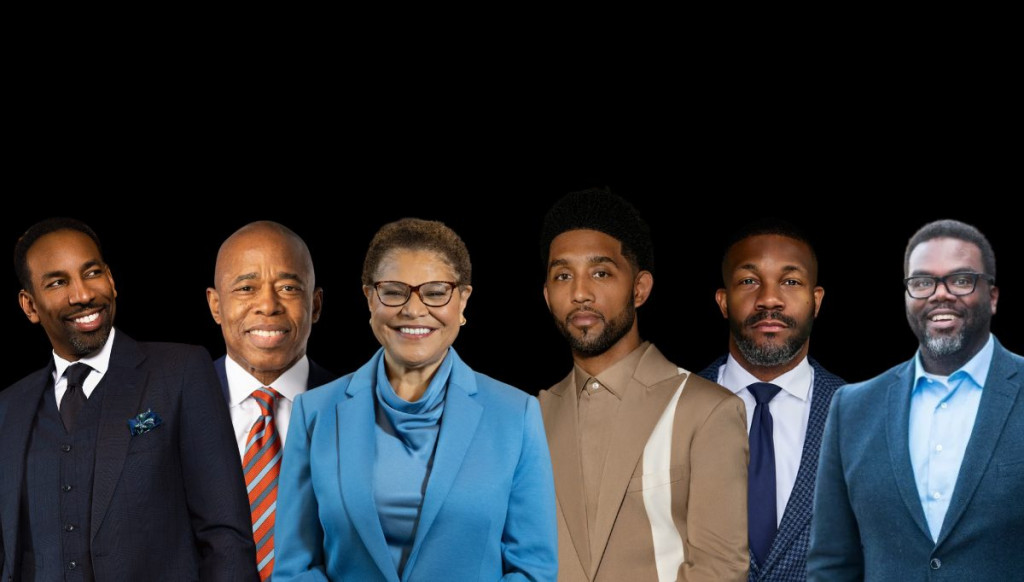Black mayors across America are taking back control of their cities. In places like Baltimore, Birmingham, Chicago, Los Angeles, and Atlanta, Black leaders are not only managing crime, they’re reducing it at historic levels.
Take Baltimore, where Mayor Brandon Scott has overseen a record-setting drop in violent crime. For years, the city was known nationally for its high homicide rate. But as of mid-2025, homicides are down 22%, nonfatal shootings have dropped 19%, and juvenile homicide victims have declined by a staggering 71%.
“I had to lay the vision,” Scott shared in our cover story interview back in May. “For me, it’s different when you’ve lost people. It’s different when you had to duck bullets.”
Baltimore’s approach under Scott includes the Group Violence Reduction Strategy, which mixes intervention with opportunity. Police visit individuals believed to be involved in violent activity with a simple, powerful message.
“Through data and real, live information, we go to those people,” Scott explained. “They get a letter from me: ‘I know who you are. I want you to live. But the only way you can do that is if you change what you do. We’ll give you the help: housing, education, mental health, whatever you need; relocation, whatever you need, take it.’”
In Birmingham, Mayor Randall Woodfin has taken a similarly people-centered approach. The city’s homicide rate has plummeted 52% compared to last year, and the clearance rate, the percentage of cases solved, has surged to an impressive 79%. Birmingham Police Chief Michael Pickett noted that street outreach teams have helped prevent retaliatory shootings before they happen, proving that proactive solutions can work.
Meanwhile, in New York City, Mayor Eric Adams, a former NYPD officer, has presided over a 24% drop in shootings and a 14% decline in murders, the lowest shooting totals in more than a decade. Robbery and burglary rates have also fallen steadily throughout 2025.
On the West Coast, Mayor Karen Bass has made community safety a cornerstone of her administration. Los Angeles saw a 14% reduction in homicides in 2024 and a nearly 45% decline in gang-related killings in areas with targeted safety programs. Property crimes, including burglary and auto theft, dropped significantly compared to the year before.
In Chicago, Mayor Brandon Johnson has helped guide the city to its lowest homicide numbers in more than 10 years. Murders are down 22% and shootings have fallen by 31% in early 2025, thanks in part to increased investment in neighborhood-based violence prevention programs.
Even in Atlanta, a city often left out of national conversations about public safety success, Mayor Andre Dickens announced a drop in violent crime. In 2024, violent crime dropped nearly 16%, with consistent declines in both homicides and property crime. That momentum has only accelerated in 2025. Through June 2025, homicides are down 27% compared to the same period in 2024, 44% compared to 2022, and 34% compared to 2021. Shootings have also fallen 19% year-to-date compared to 2024. His administration has increased officer recruitment while expanding youth-focused centers that provide mentorship, education, and mental health support.
Despite these wins, the national narrative has been slow to shift. It’s easier to write about dysfunction than it is to report on data and progress.
But the facts speak louder than the framing. Across the board, Black mayors are proving that focused, compassionate, data-driven leadership works. They’re dismantling the myth that public safety can only be achieved through mass incarceration or aggressive policing. Instead, they’re showing that care, community, and collaboration are just as powerful, if not more so.




